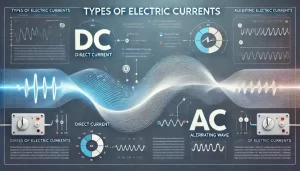- Basic Concepts of Electrostatics
- How does electricity work?
- Faraday’s Laws of Electromagnetic Induction
- Ideal & Practical Voltage Sources
- Internal Resistance of Electric Source
- Ohm’s Law and Concept of AC & DC
- What is Peak, R.M.S. & Average Value of ac voltage and current
- Kirchhoff’s Current Law (KCL)
- Kirchhoff’s Voltage Law (KVL)
- Concept of Electric Power
- Concept of AC voltage – Learn in simple language
- What are the types of electric currents? Explain with diagram
There are two types of electric sources: Ideal and practical sources. As the name suggests the ideal source is always imaginary, while the practical source is the one which we use in our practical circuits.
Voltage Source
The voltage source is the type of source which provides us potential difference in particular. Basically the voltage source and current sources are distinguished to understand their properties separately, otherwise, in real practical circuits, in general, voltage source and current source are not differentiable – I am saying this in a very broad sense!
Ideal Voltage Source
The ideal voltage source is imaginary. Its internal resistance is zero. Hence its PD i.e. output voltage is equal to its e.m.f. (E) as shown below.

Practical Voltage Source
The practical voltage source is real. Its internal resistance is greater than zero. Hence its PD is always less than its e.m.f. (E) as shown below.

Current Source
There are two types of current sources: ideal and practical current sources. Again as the name suggests, the ideal current source is imaginary and the practical current source is the one which we use in our practical circuits.
Ideal Current Source
The ideal current source is imaginary. Its internal resistance is infinite. Hence it can give constant current at its output, as shown below.

Practical Current Source
The practical current source is real. Its internal resistance is less than infinity. Hence it cannot give constant current at the output.





Thanks for the post. My doubts are cleared now. Your website is really stuffed with lots of useful information.
Very nice information sir.
Thanks.
I didn’t know that.